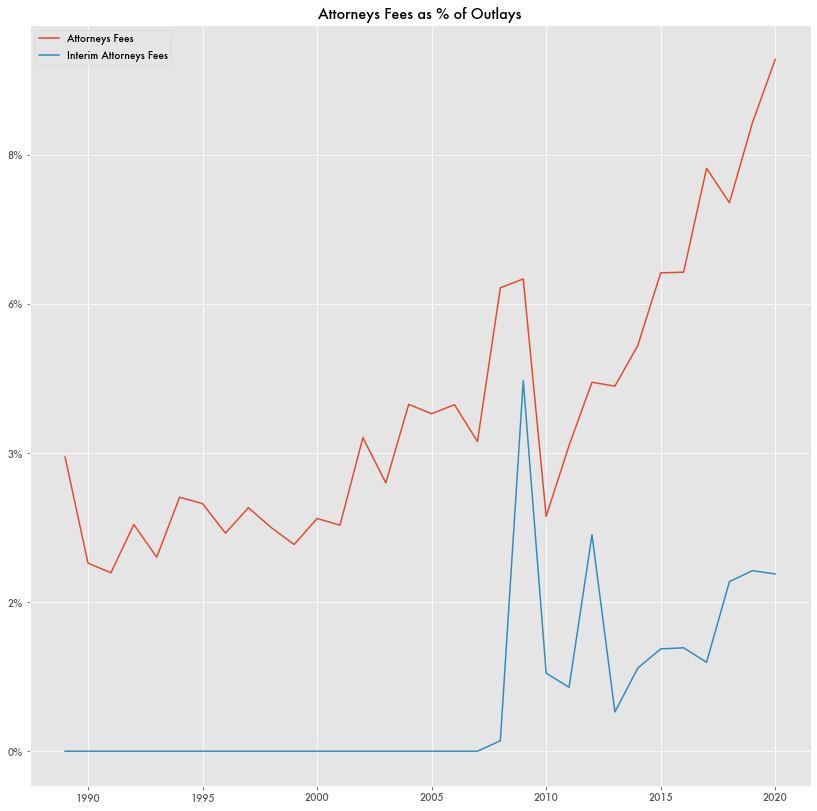Huge Growth in Vaccine Settlements Over the Last Decade
The cost of settling vaccine injury cases in the last ten years is approximately the same that the program has incurred in the first twenty years of its existence. While the average award amount is now much lower than what it was in the 1990s—over $1.2 million at a time, now around $200,000—the number of awards has almost doubled.
The data from Health and Human Services' (HHS) Health Resources & Service Administration (HRSA) doesn't specify which vaccines led to which settlements by year, but it is quite clear that the addition of the influenza vaccine to the program starting in 2005 is a major source of lawsuits.
Congress enacted the National Childhood Vaccine Injury Act in 1986 to establish the National Vaccine Injury Compensation Program (VICP) to compensate those injured from vaccines. Claims would be adjudicated under federal claims court rather than civil litigation to protect vaccine manufacturers from excessive litigation.
The program has grown as more vaccines have been distributed and new vaccines and new injuries have been added to the list of what is covered. Over 30 years, the program has adjudicated almost 20,000 claims, compensated 7,807 of them and paid out approximately $4.5 billion.
But it has been in the last ten years when awards and total compensation has really grown. The trivalent influenza vaccine was first added to the program in 2005, which is also when total compensation began to increase significantly. But it wasn't until 2013 that all influenza vaccines were added and cases began to flood in.
Influenza vaccine settlements now account for 4,444 cases, or 58 percent of all cases. It is also the most common vaccine distributed, with 1,672,400,000 doses handed out between 2006 and 2018 (45 percent of all vaccine distributions).
While influenza is the most common vaccine and the most prevalent in the compensation data, diptheria (DT) has the highest rate of claims for the number of shots provided.
Additionally, in 2017, Shoulder Injury Related to Vaccine Administration (SIRVA) was added as an allowable injury claim for vaccine settlements. It increased from representing only 1 percent in 2010 to 54.2 percent of claims in 2018. But HHS did not believe SIRVA was technically a “vaccine-related injury,” more a result of the injection, and proposed to remove it and vasovagal syncope from the table in 2020.
Compensation does not imply the vaccine caused the injury and is a negotiated settlement. Vaccines in the U.S. are considered very safe by the CDC and serious reactions are very rare.
Recently, Robert Kennedy Jr. was recently banned from the social media platform Instagram for promoting anti-vaccination beliefs. Kennedy and a non-profit he founded, Children’s Health Defense, have regularly accused common vaccines as unsafe and having potential links to autism.
The CDC and other health groups have regularly dismissed any connection between vaccines and autism.
Attorney Compensation
At the same time settlements grew, so did attorney compensation. Attorneys fees averaged 2 to 3 percent of total outlay in the 1990s, but it now exceeds 8 percent. Interim attorneys fees—those paid to attorneys who start the claim—went from zero to around 2 percent on average.
Prior to 2013, the average compensation rate—the number of claims that led to compensation out of the total—was around 35 percent. After 2013 it was 76 percent.





